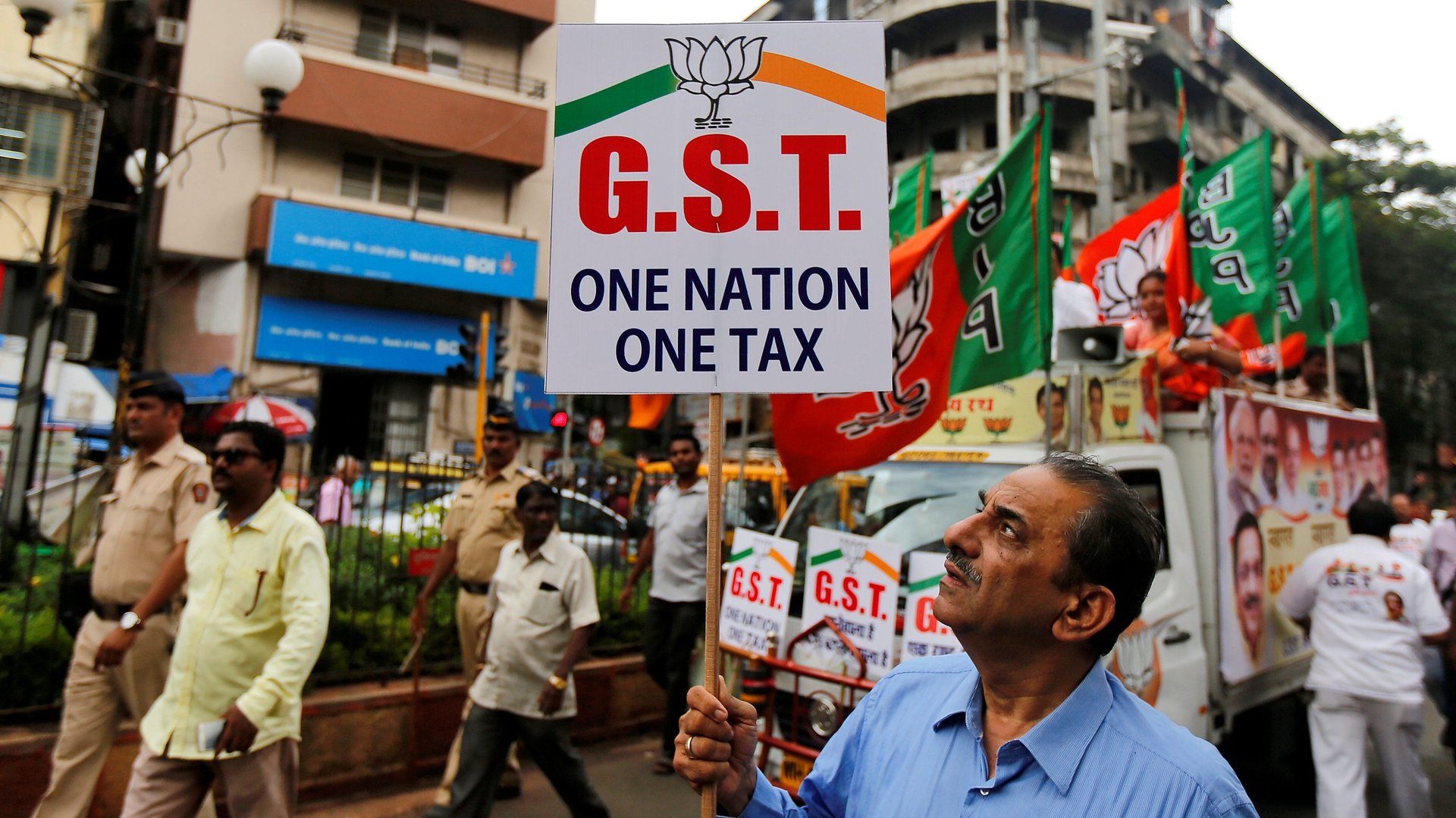India’s top court may have thrown the country’s biggest tax reform off-track
On May 19, in a major judgment, the Supreme Court held that the recommendations of the Goods and Services Tax Council would not be binding on the centre and the states. The council fixes GST rates and its recommendations were considered binding until now.


On May 19, in a major judgment, the Supreme Court held that the recommendations of the Goods and Services Tax Council would not be binding on the centre and the states. The council fixes GST rates and its recommendations were considered binding until now.
The ruling could have far-reaching implications for the “one nation, one tax” regime that was introduced in July 2017 when the GST was launched to subsume all indirect taxes collected by the centre and the states.
While acknowledging that its judgment might throw open some challenges, with states passing laws that contradict the central law, the Supreme Court said that is desirable as “Indian federalism is a dialogue between cooperative and uncooperative federalism”.
Several lawyers and commentators have welcomed the judgment since it clarifies aspects of GST and Indian federalism, but they note that there is confusion around how it will be implemented.
The GST case
The court was deciding on the validity of two Central government notifications under which an Indian importer was charged GST on ocean freight paid by a foreign seller to a foreign shipping company on a “reverse charge basis” – where a receiver has to pay the tax instead of a supplier.
The court upheld a Gujarat High Court 2020 decision which held that these notifications went beyond the powers conferred by GST laws and were therefore unconstitutional. While dealing with this issue, the Supreme Court first dealt with the centre’s submission that the GST Council’s “recommendations” are binding on the legislature and the executive of both the centre and the states. Since the recommendations are binding, the centre argued, it had the power to pass these notifications on the basis of the council’s recommendations.
“Recommendations” are not binding
The Supreme Court, in a unanimous verdict, held that GST Council’s recommendations only have persuasive value and would not be binding on the states and the centre.
The court looked at the constitutional provisions relating to GST and said that it accords equal powers to the centre and the states.
Article 246A(1) of the Constitution says that both the Parliament and state legislatures have the power to make laws with respect to GST. The court noted that this article does not say how any conflict between central and state laws have to be resolved, unlike the concurrent list, where the centre’s laws would take precedence over the states’ if there is any conflict.
The Court said that the role of the GST Council would have to be seen in the context of this “simultaneous power” to legislate.
Article 279A, which deals with GST Council, says that the council shall “make recommendations” to the Union and the States on various issues such as the rate of taxes and the goods and services that may be taxed. The court looked at the different uses of the word “recommendation” in the Constitution and held that its meaning differs based on the context. The recommendations of the GST Council are “non-qualified” and therefore the idea that its recommendations could change legislation would be “farfetched”.
“If the GST Council was intended to be a decision-making authority whose recommendations transform to legislation, such a qualification would have been included in Articles 246A or 279A,” the court held.
‘Uncooperative federalism’
While acknowledging that not being bound by GST Council’s recommendations might mean disharmony between taxes of the centre and different states, the court held that even this disharmony fell within the idea of Indian federalism.
The court looked at different forms of federalism, ranging from the “competitive federalism”, where the centre and the states are looked as “autonomous, independent and competing units” to “cooperative federalism”, where “integration and not autonomy” is the objective of federalism.
While the GST Council must “ideally function…in a harmonised manner,” the court noted, “The relationship between two constituent units that are not autonomous but rely on each other for their functioning is not in practice always collaborative or cooperative.”
Indian federalism, it says, is a constant dialogue between the centre and states. At one end of the spectrum, there are “contestations between states” which is termed by some as “uncooperative federalism”. Under this, states with lesser power could use “licenced dissent” by using “regulatory gaps” or by “passing a resolution” against the centre’s decision.
Such disagreements can be “desirable”, the court notes. Quoting from an academic paper, the court said: “An attempt to obtain an accommodation or modification of federal policy within the state should usually be understood as an example of cooperative bargaining. An attempt to contest and alter national policy is rightly understood as dissent.”
This power becomes important as the court says that GST Council impacts both “federalism and democracy”. Different parties may be holding power at the centre and the state levels. Therefore, given the composition of the GST Council, it is an avenue for both “federalism” and “political contestations across party lines”.
Therefore, making GST Council’s recommendations binding would go against Indian federalism, the court said.
This is especially important since the centre effectively has a veto in the GST Council. The Union government has a one-third vote share while all other states have the remaining two-thirds share combined. Since decisions taken by the Council have to be passed by a three-fourths majority, no recommendation can be passed without the centre’s consent.
This article first appeared on Scroll.in. We welcome your comments at [email protected].